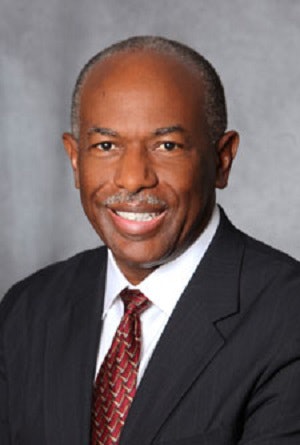The historically Black Meharry Medical College said on Friday that it will get vital research and technical support from the National Institutes of Health (NIH) to advance its development of a drug for patients infected with COVID-19.
For Meharry, this means that MRCV-19, the compound it is developing, can sprint forward to the NIH for preliminary testing, possibly in the coming weeks, said the medical college’s CEO and infectious disease expert Dr. James E.K. Hildreth, to Diverse.
 Dr. James E.K. Hildreth
Dr. James E.K. Hildreth“We will quickly know whether or not it has promise” as a COVID-19 drug candidate, he said, and can move forward in the rigorous journey new drugs take to the marketplace. The path includes testing the drug first on mice and then in people. A small human trial with about 10-20 people could begin at Meharry by early fall, Hildreth said.
In April, Diverse was the first to report on Meharry’s initial effort to join the global race to develop an antiviral or drug therapy for patients infected with SARS-CoV-2, the virus that causes COVID-19. At the time, Meharry’s Dr. Donald Alcendor, associate professor and lead scientist, said his team’s research approach is to keep this novel coronavirus from replicating once it enters the body, a process that can help reduce the severity of the infection and slow its spread.
For Meharry, support from the NIH will provide a much-needed boost. And it couldn’t have happened at a more critical moment.
Meharry’s collaboration with the largest public funder of biomedical research in the world comes even as the coronavirus outbreak in the U.S. is laying bare significant health disparities that African Americans have faced for centuries. In addition, historically Black colleges or universities (HBCUs) like Meharry have often been shortchanged when it comes to support for their work to undo these disparities.
It took a pandemic to “relax a lot of barriers” to federal research support that his college could have otherwise faced. Today, “Meharry is one of many institutions taking advantage of the technology at NIH to expedite the discovery of a promising drug to treat COVID-19,” said Hildreth. “We’re really glad that we can be a part of this and reduce our research costs.”
Conducting clinical trials for new drugs can cost millions of dollars. Institutions can seek NIH grants to fuel their research and testing, but “the success rate for HBCUs to get those kinds of grants is pretty dismal,” said Hildreth.
A 2019 study detailed this longstanding problem that Black investigators and scientists face. In 2011, an NIH team launched the study that found African American investigators who applied for nearly 160,000 NIH R01 grants between 2011 and 2015 were significantly less likely than White applicants to receive grants, even after controlling for factors like education, training and experience.
Following the release of the findings last year, some on the study team pointed to the topics that Black investigators want to research most often — socially disadvantaged communities, health disparities, adolescent health, fertility and similar subjects – and said they could be a reason why Black investigators received less competitive scores from reviewers.
Hildreth said it’s more than that. He noted that he has long observed a culture of “implicit bias against people and institutions” that runs deep and lingers at the federal agency. He suggests instituting a “double-blind grant review” process. But systemic change, Hildreth said, doesn’t come quickly or easily. It needs to be deliberate and consistent — and address the root causes.
Still, things have begun to change — slowly — he said, and his college in Nashville, Tennessee is a beneficiary, especially in this time of pandemic.

“… Meharry and Meharrians are trusted in the communities we serve, which have a history of abuse at the hands of America’s medical establishment,” said Hildreth at the hearing. “We understand the subtle, yet critical cultural differences that have long been overlooked by mainstream providers, creating deep fear and distrust. The same is true for our sister HBCU medical schools.”
That, for Hildreth, is key in dealing with the disparities the pandemic has exposed.
“It’s a racial pandemic within a viral pandemic,” Dr. Ibram X. Kendi, founder of The Antiracist Research & Policy Center at American University, told members of the committee at the hearing.















